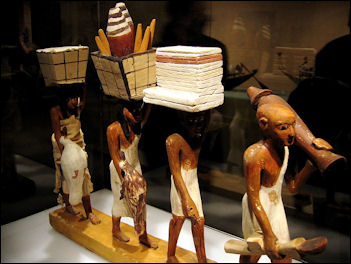By James O’Connor.

Oftentimes, our perceptions of what influences us undermine perceptions of what could influence us, and this phenomenon works to our detriment – let me explain:
In 243 B.C.E., a man stooped awkwardly over a well for days beneath the searing Egyptian sun. He scribed notes in his codex, toiling over them as if the moon would cease its orbit and crash into Earth upon failing to find the object of his search. He garnered the attention of many bemused onlookers, who assumed his behavior was too bizarre to result in something noteworthy. Nobody stoops over a well to peer at his own reflection for days; perhaps he had gone mad.
After several more nights at work, Eratosthenes departed the water well with a codex containing possibly the purest display of brilliance in all history. He had measured the circumference of the Earth using nothing more than sunlight and an old water well, discovering the spherical shape of the planet we inhabit today.
Eratosthenes faced many barriers in attempting to share his discovery: He had no phones, transcontinental mail, radios or ships with proper equipment. If he had had methods of communicating with others, and most importantly, others’ willingness to survey the way knowledge is acquired cross-culturally, Christopher Columbus would not have feared falling off what he believed to be a flat surface nearly two thousand years after Eratosthenes’ display of brilliance.
Today, many indigenous cultures face the same barriers to communication. However, the barriers that America creates between itself and other cultures’ forms of knowledge are not forged by lack of interconnectedness – they are self-imposed at our own peril. For this reason, we are subject to many unknown unknowns.
Globalization of Western ideology, science and thought only contribute to the waning relevance of various knowledge forms developed in more remote parts of our world. If globalization meant what the term implied, it would facilitate symbiotic interaction and education among cultures. However, the term functions as a euphemism for westernization. Granting so much credence to the empiricism of our own thought hinders our ability to accept and explore other forms of knowledge. In other words, a mindset deluded by industrializing and producing to the brink of oblivion precludes the invaluable, yet elusive worldwide imagination in which understanding and therefore influence guided by innovation are boundless.
Recently, the Great Bear Rainforest in Canada fell victim to this pervasive ideology: oil riggers destroyed international ecosystems that are just as important to this locale’s understanding as our metropolises and the oil that runs them are to our understanding. In this context, there is linguistic and epistemological dissension – one group views the river and its surrounding forests as a mode of oil transportation and untapped revenue, while the other group views it as an ecosystem sustaining valuable human and animal life. Neither party is wrong, but the latter of the two groups’ beliefs are jettisoned. Since the 15th century, when Pilgrims infiltrated the Native American’s land and claimed it their own, this pattern has engendered and sustained western behavior as we presently know it – behavior that champions economic imperialism and one-dimensional ways of knowing.
Even worse, in rare yet still unethical circumstances, indigenous peoples are unable to showcase their brilliance to the masses through their own means, and westerners take advantage of the indigenous cultures’ ideas – portraying them as their own. Many of the indigenous world’s ideas are not only brilliant; they are cost-efficient. Meanwhile, it is more desirable in our culture to possess items that serve no purpose beyond the fulfillment of ego than it is to display resourcefulness with little belongings – a skill many entrepreneurs could stand to learn. We must observe and consult the indigenous before, as we always have, attempting to colonize their land through America’s hegemonic order.
GDP, or ‘Gross Domestic Product’ has become the West’s injurious, yet golden metric of national progress. It does not matter what we produce, why we produce it or whether what we produce hurts the environment, our mental and physical health, or our life expectancy. As long as the number is growing, newspapers are littered with accolades of America’s economic ‘success.’ We are hopelessly lost within our own world, and it may continue proving the ruin of us.
For these reasons I cannot help but look at my country, America, through a lens of nostalgia and homesickness. We are shipwrecked from collective origin of thought and culture as a human species – cast adrift by the paradigms we ascribe to not just other cultures, but other people as well. In the thought of individuality we are natives, but in the thought of humanity we are foreigners. As a nation, we are more equipped to learn about the world and its marvels than anyone, but we must reach outside our present knowledge boundary to accomplish this objective and reap the benefits it can facilitate.
I encourage our American leaders to dispatch a message in a bottle; one replete with not only a call for help, but also a call for understanding. Upon setting it adrift in the sea of global thought, America’s message may intersect with the messages of others at the unbridled origin of worldwide understanding.
It is only then that rescue will prove itself possible.


